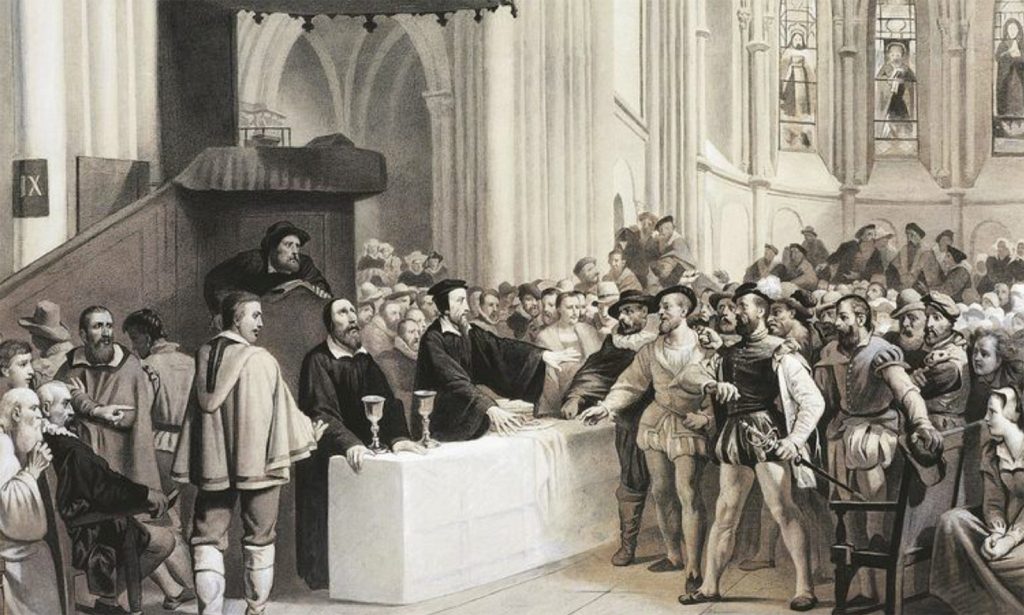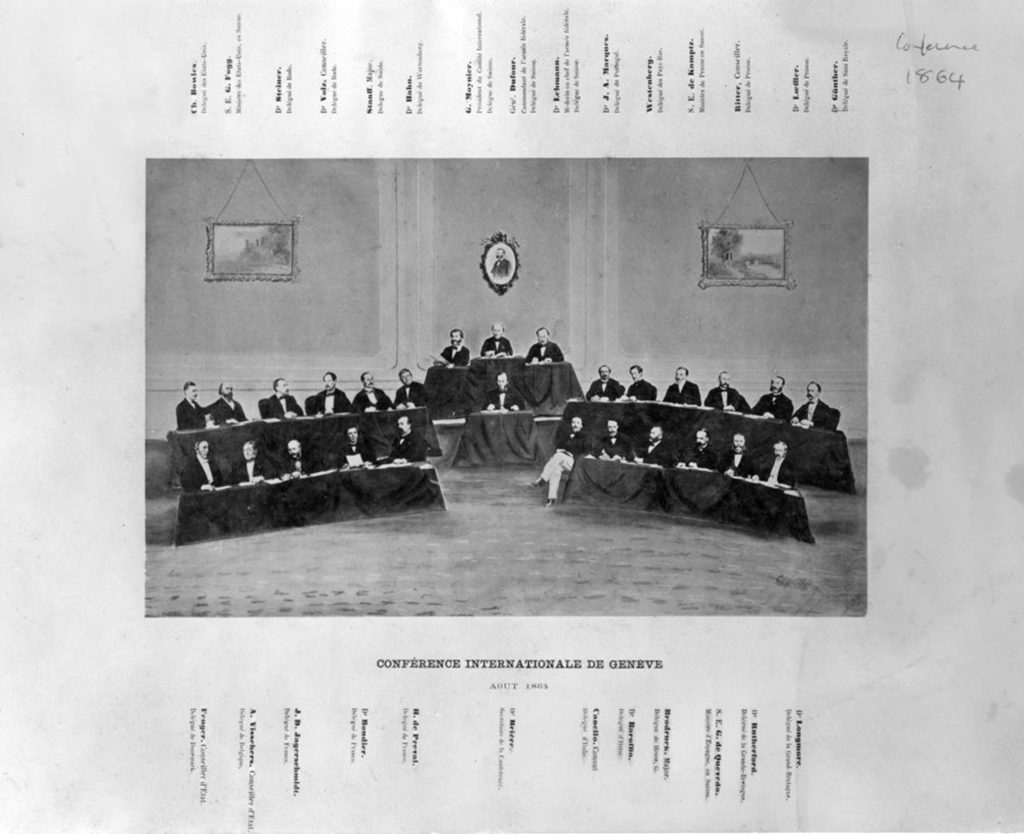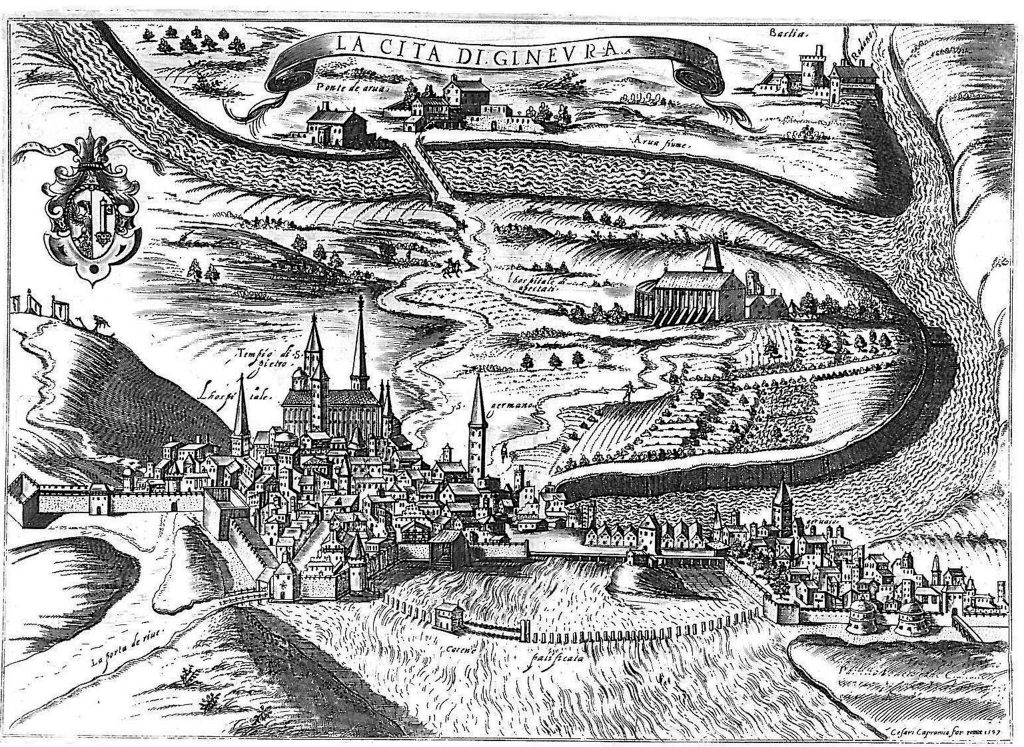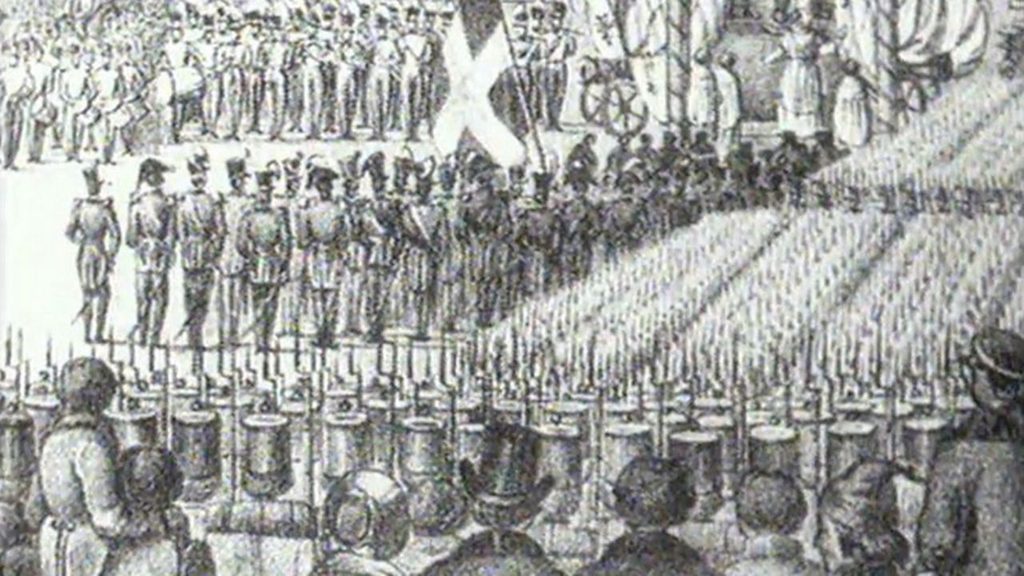Les premières traces d’occupation humaine du site de Genève remontent à 3000 ans av. J.-C. environ; elles ont été découvertes sur les rives du Léman, où s’élevaient des villages lacustres. La colline de la Vieille Ville, centre de l’ancienne Genève, ne sera habitée que beaucoup plus tard, probablement pas avant 1000 ans av. J.-C.; vers 500, des membres de la peuplade celte des Allobroges s’y installent à l’intérieur d’un refuge fortifié. La conquête des terres allobroges parera Rome fait de Genève une ville romaine. En 58 av. J.-C., Jules César la défend contre une incursion des Helvètes; la mention de cet évènement dans ses Commentaires de la Guerre des Gaules est la première apparition du nom de Genève dans un texte. A l’apogée de l’Empire romain, l’agglomération se développe totalement. Peu avant 400 an ap. J.-C., elle est érigée en évêché, centre d’un vaste diocèse.


En 443, une tribu germanique, les Burgondes, se fixe dans la région. Pendant trente ans, Genève abrite la capitale de leur royaume. Celui-ci est occupé par les Francs en 534 : Genève est incorporée à la monarchie mérovingienne, puis à l’Empire carolingien. La désagrégation de ce dernier, au IXème siècle, voit naître le Second royaume de Bourgogne, auquel Genève appartient. En 1032, cet Etat passe aux empereur germaniques. En droit, Genève dépend désormais de l’Empire; en fait, depuis le XIème siècle et jusqu’à la Réforme, elle est gouvernée par ses évêques devenus seigneurs de la ville.
Genève reste une localité secondaire jusqu’à la fin du Moyen-Age. Ses foires, qui atteignent leur plus grand essor au XVème siècle, lui donnent alors, et pour la première fois, une réputation internationale. Cependant, son indépendance est menacée par la Savoie, dont les princes s’efforceront, du XIIIème au XVIIème siècle, de s’emparer de la ville, sans y parvenir. Au moment du plus grave danger, dans le premier tiers du XVIème siècle, l’appui des cantons suisses de Fribourg et de Berne sauve l’autonomie de la cité.

La Réforme triomphe en 1535, Politiquement, la cité est saintement une république. Calvin s’y installe en 1536. Son génie porte Genève au rang de Rome protestante. Dès 1550, une foule de protestants, en particulier français et italiens, persécutés dans leur pays, y trouvent un asile. Sous l’égide de Calvin et de Théodore de Bèze, ils procurent à leur nouveau foyer un grand rayonnement religieux et intellectuel, marqué en 1559 par la fondation de l’Académie, ancêtre de l’Université actuelle. Les réfugiés aident aussi à redresser l’économie, en récession depuis le déclin des foires à la fin du siècle précédent.
En 1602, le duc de Savoie, Charles-Emmanuel, tente une attaque nocturne contre Genève. Cette « Escalade », comme on l’appelle, échoue; sa commémoration, le 11-12 décembre, est la principale fête patriotique des genevois. Les mesures prises par Louis XIV contre le protestantisme en France font affluer une deuxième grande vague de réfugiés à la fin du XVIIème siècle. Le XVIIIème siècle fut une époque de grande prospérité. Les industries genevoises – dont la plus connue est l’horlogerie – le commerce, la banque sont florissants, Rousseau naît à Genève en 1712, Voltaire vit à proximité de 1755 à 1778. Elle a des savants de renom, tels le biologiste Charle Bonnet, le physicien et géologue Horace-Bénédict de Saussure. En revanche, elle est déchirée par des troubles civils, qui opposent classes et partis.

La révolution genevoise de 1792 détruit le gouvernement aristocratique d’Ancien Régime et proclame l’égalité politique. En 1798, Genève est annexée par la France et devient le chef-lieu du département du Léman. La défaite des armées napoléoniennes lui rend sa liberté le 31 décembre 1813. Les magistrats de la république restaurée sont conscients que leur ville ne peut plus former un Etat isolé; ils demandent son entrée dans la Confédération suisse, obtenue définitivement en 1815. En 1846, une révolution dirigée par James Fazy, renverse le gouvernement de la Restauration et établit la constitution qui régit encore le canton. Au cours du XIXème siècle et au début du XXème siècle, Genève accueille de nombreux réfugiés politiques; le plus fameux est Lénine, qui y séjournera de 1903 à 1905 et en 1908.
Suivant les idées du Genevois Henry Dunant, le Comité international de la Croix-Rouge est créé en 1864, première des institutions internationales que la ville va abriter. La mission internationale de Genève s’affirme après la Première Guerre mondiale, lorsqu’elle est choisie comme siège de la Société des Nations Unies. Si, en 1945, cette dernière se transfère à New-York, Genève demeures le siège de son office européen. Plusieurs dizaines d’autres institutions internationales y résident, parmi lesquelles on peut citer l’Organisation internationale du Travail (OIT), l’Accord Général sur les Tarifs douaniers et le Commerce (GATT), l’Organisation Mondiale de la Santé (OMS), l’Organisation européenne pour la recherche nucléaire (CERN) et le Conseil des Eglises (COE).



